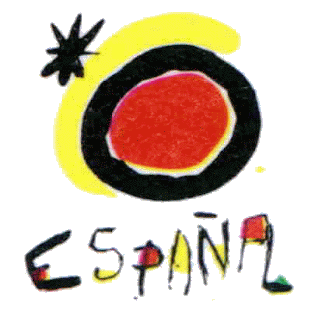Anthem update

Read the previous post on lyrics for the Spain's national anthem.
Spanish anthem lyrics fall flat
Less than a week after proposing lyrics for the wordless national anthem, the Spanish Olympic Committee has withdrawn them because of a "lack of consensus".Committee president, Alejandro Blanco, said the lyrics which began with "Viva Espana" had aroused "controversy and in some cases, rejection".
There had been concern that the phrase harked back to General Franco's era.
Lyrics used during his dictatorship were dropped in 1975 because of their associations with his regime.
Expert panel
The four new verses were selected from 7,000 entries by a panel of six experts including a musicologist, a historian, a composer and an athlete.
Their task was to come up with up-to-date words for a royal march that was first played in 1770 during the reign of King Carlos III.
The winner of the competition was Paulino Cubero, an unemployed man from La Mancha.
Another of the verses included the words "Ama a la patria" (love the fatherland) which was criticised as reflecting Franco's nationalism in the face of separatism in Catalonia and the Basque country.
Tenor Placido Domingo was to sing the new anthem at a gala event on 21 January but that has now been cancelled.
Mr Blanco said he accepted it was time to go back to the drawing board.
What makes you proud to be Spanish? What are the best things about Spain and being Spanish?
Comments
Even by making a short comment you can learn one or two things.
"One of things than make me be aproud of being spanish is the high number of people who donate the organs of their just death relatives and let get many people survived when they put up with a terminal desease"
Compare the above to the corrected version:
ONE OF THE THINGS THAT makeS ME PROUD TO BE Spanish is the high number of people who donate THE organs OF THEIR DEAD RELATIVES and THEREFORE GIVING many people, WHO SUFFER FROM A DISEASE, THE CHANCE OF SURVIVAL.
to DIE (v)
(the) DEATH (n)
DEAD (adj)
to SUFFER FROM an illness or a disease
to PUT UP WITH a situation or someone
eg I don't know how you put up with your boss; he's so demanding.
eg I have to put up with a lot of noise living in this neighbourhood.
Nationalites and countries always have capital letter: France, French...
"Let" is to give permission. So, it would make more sense to say "they let the organs of their dead relatives be used for transplants"
I am not sure how organ donation works in Spain.
Do people carry cards which state that they want their organs to be donated when they die?
Or can their relatives decide for them after thier death?
In Britain some people think that everyone who dies should donate organs, unless they expressly say otherwise (before they die; naturally!).